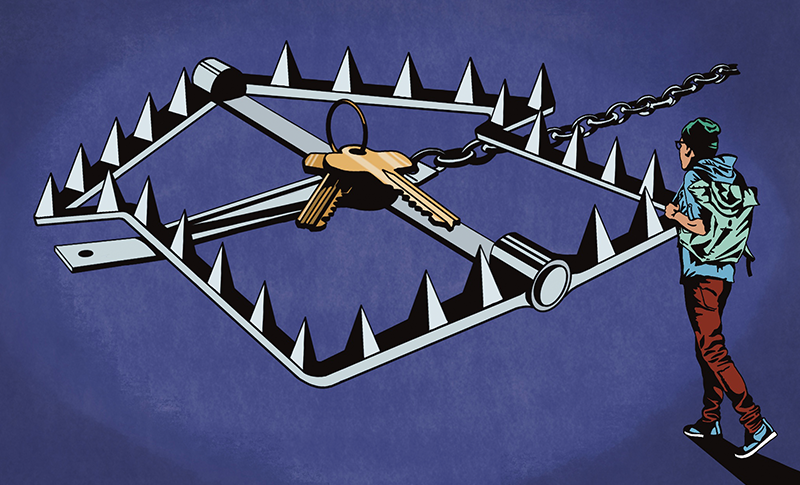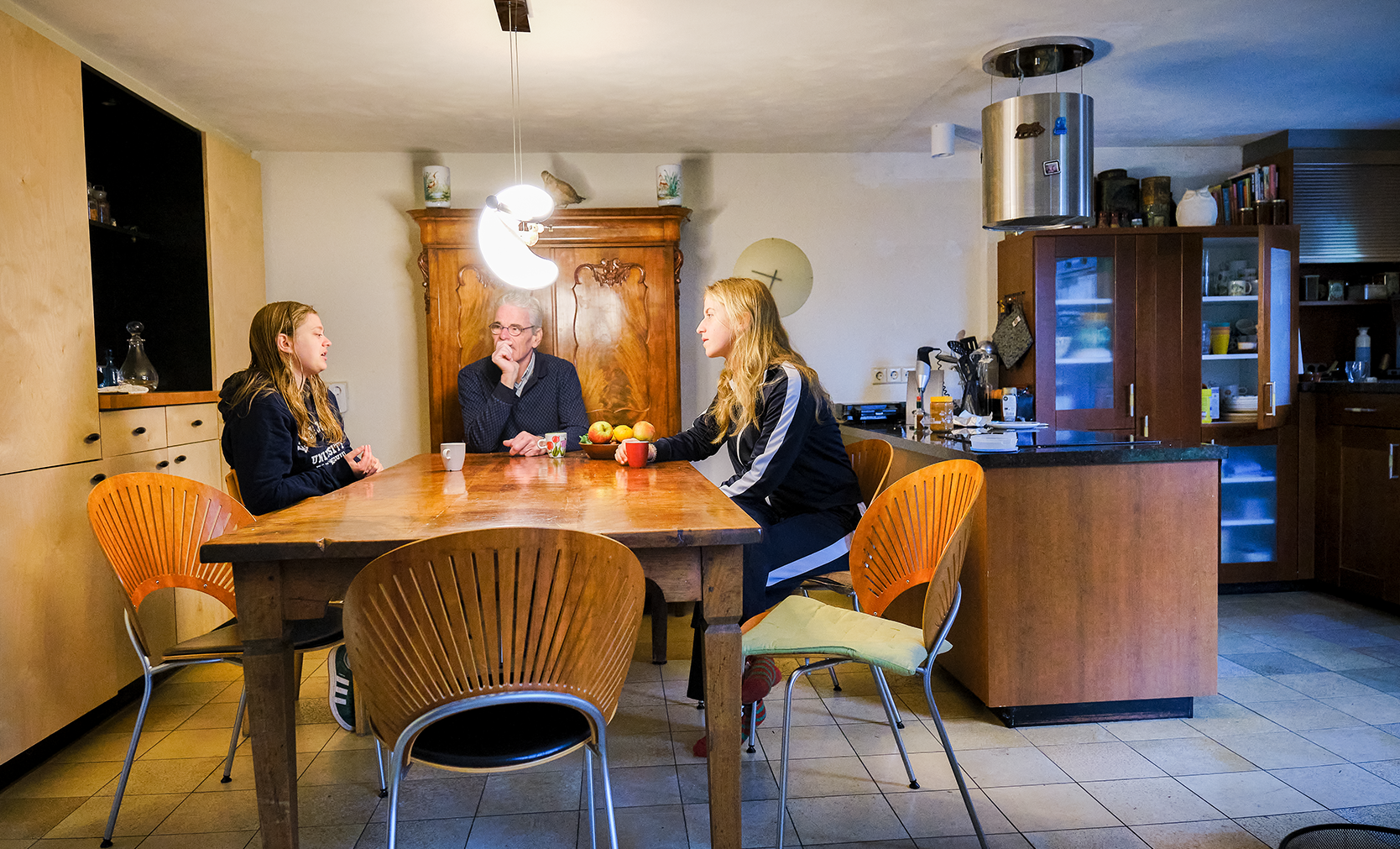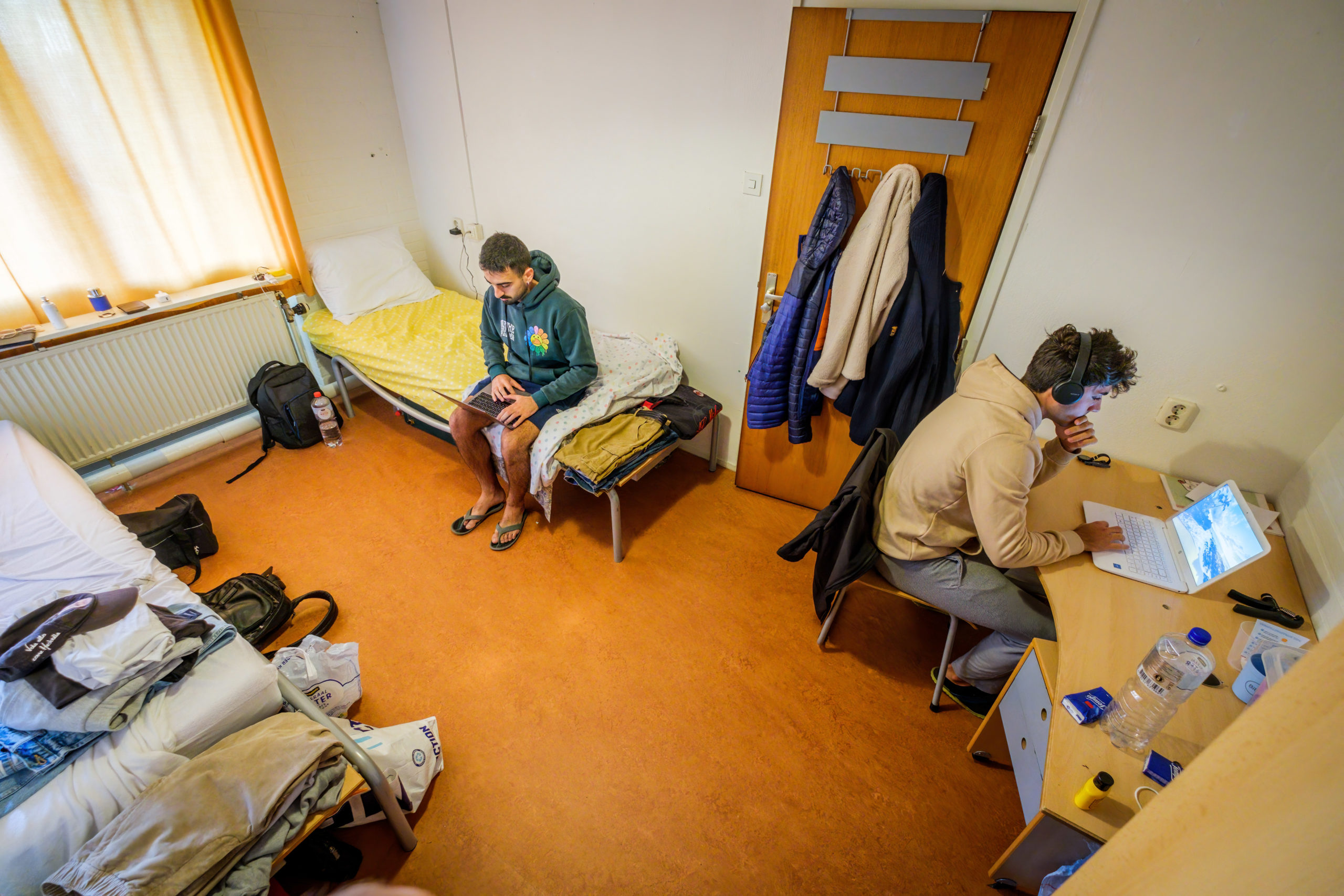Students looking for a room in Wageningen should be wary of scams. Foreign students are particularly vulnerable, according to a survey by Resource. Under time pressure, they sometimes pay for a non-existent room.
Every six months, another wave of new students comes to Wageningen, all needing a room. The pressure to find a room is especially great for international students: without a residential address, they can’t register with the municipality or get a citizen service number – without which they can’t access their bank accounts. Scammers exploit that pressure and get students to pay for rooms that don’t exist.
‘I think you are an easy target as a desperate exchange student,’ says Mathilde Richard (21). She came to Wageningen this year as an Environmental Sciences exchange student and lost 1100 euros to a scammer when she was looking for somewhere to live. ‘I felt terrible. How could I tell my mother about it?’
I felt terrible. How could I tell my mother about it?
She had found the flat through an ad posted by a girl on Wageningen Student Plaza on Facebook. The description was detailed, the room was furnished and the price was reasonable. ‘I was very interested so I said: okay, what should I do? Then I received a perfect-looking contract by email – which I was told to sign quickly, because the first one to sign it would get the room. The address existed; I had already cycled past it.’ When Mathilde asked if she could have a look at the flat, the ‘landlady’ said she was about to become a grandmother and would not be back in Wageningen for another two days. But Mathilde could transfer the money meanwhile. ‘That was a pity but I saw no other option. I sent the money: 500 euros deposit and 600 euros for the first month’s rent.’ The money would be in the landlady’s bank account two days later. ‘I emailed her to check if the money had arrived. She said yes, but that she had spoken to her lawyer, who had advised her to ask for the second month’s rent as well. That was so weird that I immediately realized I’d been scammed.’
In a tent
Students regularly warn each other about scammers on Wageningen Student Plaza. ‘I know you have to be careful with Facebook,’ says Mathilde. ‘But I was sleeping in a tent and had already enquired about maybe 100 rooms.’ She is not the only one to have been scammed when looking for a room in Wageningen this year. Students Emma and Lucas* both lost 1500 euros to a scammer. Like Mathilde, they were taken in by a girl on Facebook who passed them on to a landlord. Lucas hesitated from the start. ‘I wasn’t in the Netherlands and couldn’t check it out. But the contract looked good and so did the photos.’
Some of them even send a copy of their passport to gain your trust
As soon as Resource put out a call on Student Plaza, 10 students came forward who had been in contact with scammers. They realized it was a scam in time, but for several of them it was a close call. ‘I have had contact with three scammers,’ says Isabella*. ‘You don’t notice anything at first, of course. Some of them even send a copy of their passport to gain your trust.’ Several students report having been in contact with up to five different scammers in one day.
Too nice
Ingrid Hijman, head of WUR’s Student Service Centre, knows of a number of cases of room fraud in Wageningen. ‘Most of them are exchange students. I’d say it does happen now and then, but not as much as in other cities.’ The Exchange Team tries to warn incoming students about fraud too. ‘Like: don’t pay a deposit before you get the room, and if it seems too good to be true, it probably is too good to be true.’ No rooms are reserved for exchange students coming to Wageningen, the way they are for longer-term international students. ‘Every year there are lots of Wageningen students going abroad and subletting their rooms, so it usually works out fine,’ says Hijman. It was harder this year, though, because of the more acute room shortage.
If it seems too good to be true, it probably is too good to be true
Besides Idealis and Facebook, the university also recommends HousingDesk Wageningen to students looking for accommodation. The staff of HousingDesk Wageningen check up on the landlord before posting the advertisement on their website. When students are doubtful as to whether an ad they have seen is genuine, they can ask HousingDesk to check the room, says Suzanna from HousingDesk. ‘You can do a reverse image search on Google of the photos accompanying an advert, to see if they are the same anywhere else on the internet. And sometimes I just get on my bike and go and ring the doorbell.’ She also advises foreign students to have a video call with the provider.
Emotional impact
Mathilde, Emma and Lucas all realized they’d been scammed when the supposed landlord asked for a second and third month’s rent for no clear reason. Emma also found the name of the girl who posted the ad on Facebook on a list of 12 scammers on the HousingDesk website. The emotional impact was big. ‘It’s a terrible feeling. Like, how could I have been so stupid?” says Emma. Mathilde agrees. ‘I felt really, really stupid.’
I felt really, really stupid
The three students reported the incident to the police. Mathilde and Lucas tried to do so in their home countries, but neither heard back. Emma has not yet heard back from the police in the Netherlands, but hopes they will contact her. ‘I am still in contact with my scammer. I hope this way I can help the police catch him or her.’
Mathilde still sees the same type of scam on Facebook, where the landlord is away from Wageningen for a couple of days but still gets the new tenant to pay up front. Lucas also notices that the girl who reeled him in is still active on Student Plaza. Mathilde only found a room after she’d been in Wageningen a month. ‘Through a friend on WhatsApp. I think we paid too much, but at least I have a roof over my head.’
Red flags
How to recognize a scammer?
. The scammer has an excuse why you cannot view the room or flat before you transfer the money. ‘I am out of the country to visit my child’ is a common one.
. They’re in a hurry: the first person to sign the contract gets the room.
. The person posting the ad on Facebook has little or no information on their personal page.
. There are anomalous details in the use of language. These are often quickly noticed by a Dutch student, but are not always obvious to a foreign student. Besides spelling mistakes or a poor command of the (English) language, there are other characteristics. Suzanna from HousingDesk: ‘It’s strange if the advertisement states that the flat is “near a shopping mall”, because we don’t any of those in Wageningen.’
. The scammer asks for personal documents. A landlord is not allowed to ask for such documents, like a copy of your passport. The citizen service number is also not required for the rental agreement. Landlords can ask for personal information and your ID number, however.
Response Wageningen Police
Erwin Vissers, Wageningen police: ‘In the past year, the police have received a few dozen reports of scams or fraud relating to offers of rooms in Wageningen. The actual number of incidents is probably much higher, as victims often don’t report the fraud because they are ashamed or because the amount of money involved was small. We can’t get a good picture of the problem without those reports, so our first tip is to always report the fraud. In addition, these scams mainly take place via adverts in Facebook groups so be on the look-out for that. A third tip: don’t transfer money or a deposit to a foreign account without good reason!’
* Emma, Lucas and Isabelle are pseudonyms. The real names are known to the editors.

 Illustration Valerie Geelen
Illustration Valerie Geelen 

